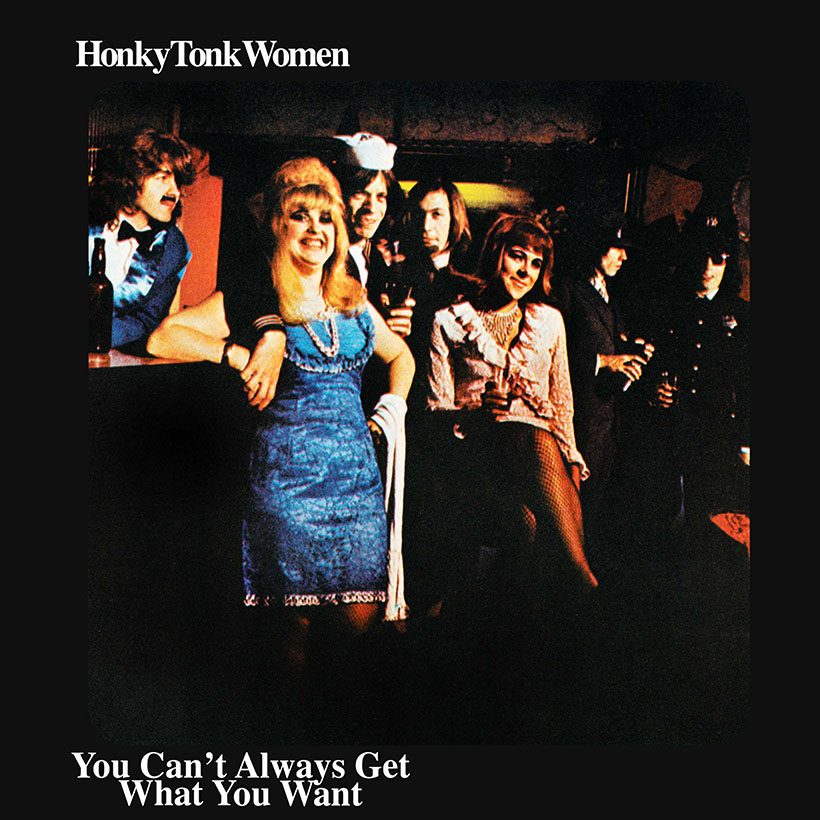‘Honky Tonk Women’: The Story Behind The Stones’ Funky Classic
Inspired by a trip to Brazil, ‘Honky Tonk Women’ is one of The Rolling Stones’ most celebrated singles.

Keith Richards has called the song “the culmination of everything we were good at at the time.” Bassist Bill Wyman referred to it as “triumphant.” And both men agree, in their respective memoirs, that even while The Rolling Stones were in the heat of recording and mixing “Honky Tonk Women,” they had a hit on their hands. Or as Richards, in his inimitable fashion, put it: “[It’s] one of those tracks that you knew was a number one before you’d finished the mother—er.”
This (perhaps unspoken) prediction proved more than correct. Released as a standalone single on July 4, 1969, “Honky Tonk Women” went to No.1 in seven countries – the last time the group would achieve such a feat in their home country – and has proved to be one of The Stones’ most enduring and beloved tracks. But before it could reach iconic status, the song, as many famous tunes do, had to go through a metamorphosis.
The Songwriting Process
The seed for “Honky Tonk Women” was planted during a trip that Richards and vocalist Mick Jagger took to Brazil. Inspired by the cowboys working the ranch where they were vacationing, the two started knocking together a Hank Williams/Jimmie Rodgers-inspired tune, with Jagger using the countrified tone of the music as inspiration for his lyrical ode to the working women of the Old West. (You can get a taste of their original idea through the re-recording of it, entitled “Country Honk,” found on their 1969 album Let It Bleed.)
In the hands of the full band, the song had moved in a much slinkier, funkier direction, with some help from roots musician Ry Cooder who taught Richards the open-G tuning he often uses. (Cooder would go on to contribute to Let It Bleed and Sticky Fingers, as well as the soundtrack to the 1970 Jagger-starring cult film Performance.) Richards’ rhythm guitar sets the tone of “Honky Tonk Women,” bringing it directly inline with the Chicago and Memphis blues recordings that drew the band together in the early 60s. But it also feels a little off-balance thanks to the wobbly cowbell part provided by producer Jimmy Miller. By the time the chorus kicks in, complete with a stammering bassline from Wyman and brawny backing vocals from American R&B singers Doris Troy and Nanette Workman, the song is in full gallop and ready to send the dancefloor into a frenzy.
“Honky Tonk Women” was also the track that introduced Stones fans to guitarist Mick Taylor. The former member of John Mayall’s Bluesbreakers was brought in to replace founding member Brian Jones. Taylor – only 20 at the time – provided the glue for the song, helping the transition from verse to chorus with country-blues licks that blended the cornpone picking of Don Rich with the psych-tinged tones of Peter Green.
Listen to the best Rolling Stone songs on Apple Music and Spotify.













Craig Stevens
July 11, 2020 at 5:27 pm
Words can’t describe the greatness of this band it’s done by just being them
Charles Meggitt
July 11, 2020 at 9:56 pm
Greatest Rock “N” Roll Band ! Great Song !
geoff
July 12, 2020 at 1:10 am
the only other rock wn roll band worth mentioning is ACDC put these two on the same billboard what a f nite
Mark Lawry
July 12, 2020 at 10:35 am
Great song Great band
Andrew Waters
July 13, 2020 at 1:36 pm
Wasn’t Gram Parsons with Keith and Mick in Brazil. I remember reading somewhere that he had a hand in it.
Rose Brandt
August 5, 2020 at 7:08 pm
You’re right!! I remember hearing that, too!!
Harper
July 16, 2020 at 1:55 am
Can’t believe Gram Parsons is not mentioned
John Bryans Fontaine
December 4, 2020 at 11:20 pm
Best Rock ‘n Roll tune of all time by the Greatest Rock ‘n Roll Band of all time.